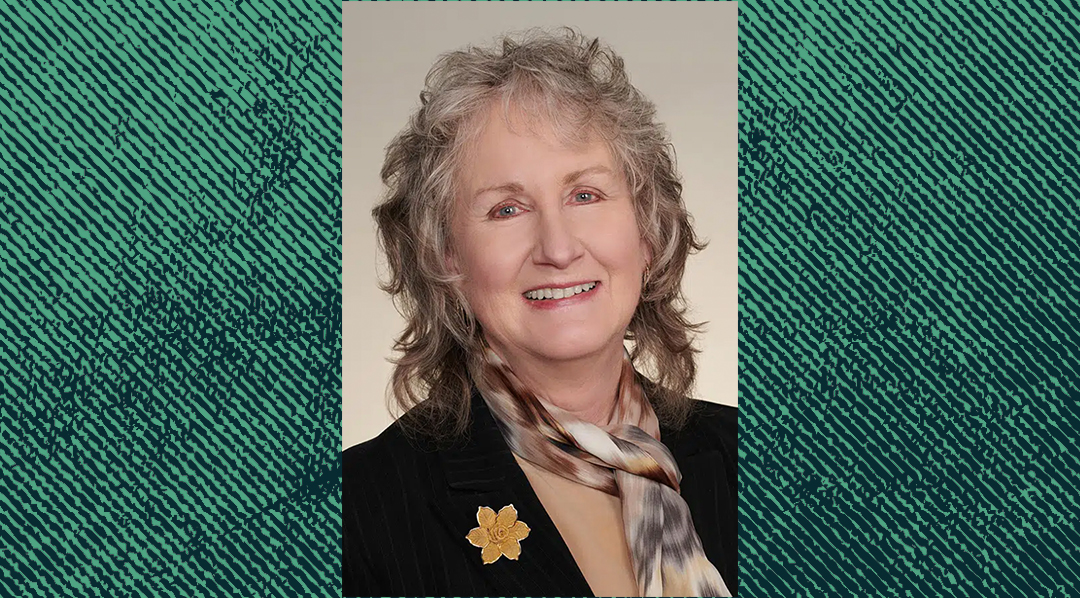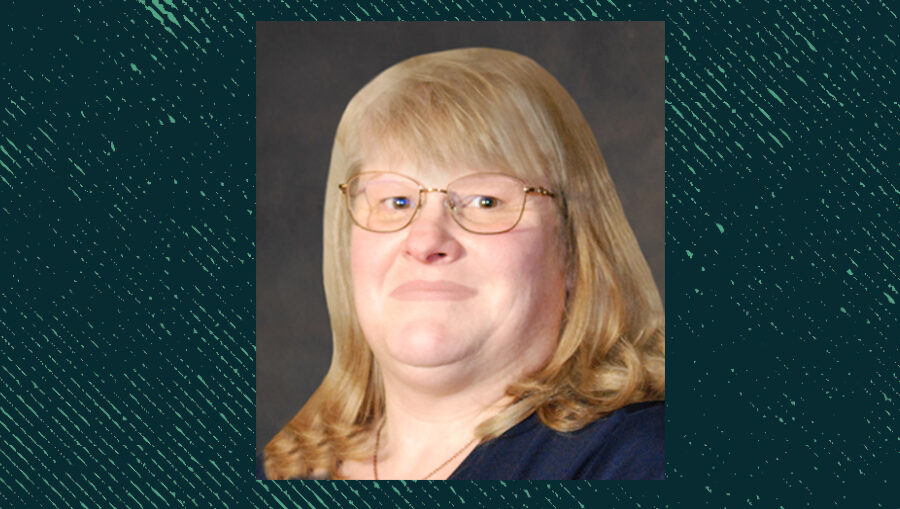Sally M. Johnstone has spent her career improving the quality, accessibility, and affordability of post-secondary education for adults. She helped design and launch Western Governors University, which uses an innovative, competency-based education model that allows adult students to take advantage of the knowledge they already have to decrease the time it takes them to earn a degree. She served as the provost of a traditional institution, Winona State University, and later joined Western Governors University as its Vice President for Academic Advancement. Until recently, she served as the President of the National Center for Higher Education Management Systems. Last fall, she decided to continue building on this legacy of service by joining Antioch University’s Board of Governors. She takes on this role with enthusiasm and vision.
We recently interviewed Johnstone about what she finds most exciting about Antioch, where she’s most enthusiastic to contribute, and what she hopes her impact will be.
Jasper Nighthawk: What about Antioch University do you find most compelling and intriguing?
Sally Johnstone: There are two elements. One of course, is the social justice mission. People are not in this to make lots of money. They are in it to help people learn, and to explore their own potential, and really to develop as functioning human beings in an equitable society. That’s huge. The fact that Antioch has always been about that and has blatantly stayed that way, I think is wonderful. Particularly in the current political zeitgeist. The other thing that I found very attractive was Antioch’s role in the development and formation of the Coalition for the Common Good. I’ve watched collaborative enterprises among higher education institutions go well, and I’ve watched them not go well. It’s what I hope I can help contribute to the board and to the leadership of Antioch.
Jasper: I’m sure you have many responsibilities in your life, things that you’re doing otherwise. What has driven you to accept this position on Antioch’s Board of Governors?
Sally: Frankly, having really good conversations with both Chancellor Groves of Antioch and President Comerford of Otterbein gave me the opportunity to see what these two individuals are hoping to build. I hope I can contribute, because I really believe in what they’re trying to do. Both institutions—as they’ve come together to try and figure out how this thing might work and what it is going to look like, and how we let others join in—are creating a very solid platform. But now the question is, OK, what next? That’s terrifically intriguing to me to do in the private world of education as opposed to the public sector.
Jasper: You’ve had this career focused on improving quality, accessibility, and affordability for post-secondary education for adults. How did you come to work in this part of higher education?
Sally: The very first part of my career, I had the opportunity to either join a rather traditional institution as a tenure track faculty member or go renegade and work in an institution that was devoted to serving adult students. What I’ve found—and I’ve never found reasons to not continue to believe this—is that when you’re trying to serve adult students, you have to take a hard look at what you do and how you do it. You have to really be responsive. Adults don’t want to do things the way they’ve always been done. They want to look at better support structures, more reasonable ways in which they can be guided through learning. My academic training is in how people think and learn, and the way most traditional campuses work does not reflect the evolving science of learning. But I see it in most programs that try to serve adults, because they have to be responsive.
Jasper: You’ve written and presented a lot about issues of integrating effective new practices to improve student success. But I’m not totally sure what that means. Could you tell us a little bit more about your work in this area and how you’re going to bring that to the Board of Governors?
Sally: A lot of that work has at its core, taking advantage of new technologies as they have developed. To utilize new technologies in post-secondary education, you have to rethink what you do to help students learn. That’s a good excuse to help people think about how to change what they do. Very early on in my career, this is pre-internet—although I did have a DARPANET account early on—I was asked to help a coalition of graduate engineering schools across the country better utilize the technology they had available to them. It was basically television. Using satellite links from the universities into the major employers of engineers, like IBM and Hewlett Packard and others, we tried to help create a better experience for students. We helped the faculty see what the students didn’t understand and what wasn’t working for them, but we also gave them some lessons in how to teach, because nobody had ever done that. The net result was—we tracked this—every one of the engineering faculty members that were working in this televised environment took what they had learned back to their classrooms. They became better teachers.
Jasper: That reminds me of Antioch’s graduate education programs, where there’s an MA for Experienced Educators. Talking to that program’s faculty about the experience of having oftentimes mid-career or late-career teachers come and get their master’s degrees, they describe these students who are so hungry to have a chance to reflectively develop their own practices as teachers, now that they know what they’re what they’re doing.
Sally: My husband taught US history in colleges for decades. He had never gone through a teacher ed program. During the time I was working at Western Governors University, he was teaching at a local community college, and he decided to get another master’s degree from WGU in instructional design. It changed the way he taught, because he had never considered a lot of the issues that go into making effective classroom environments. You have to start empowering students so that they are actively learning, not passively listening to what you’re doing. My sense is that’s at the core of Antioch.
Jasper: That’s certainly been my experience of Antioch. But back to you, what would you like our readers to know about you that they might not know from your official bio? Or, put another way, if somebody wanted to understand who you are, what would they need to know?
Sally: I like to talk to people and learn from them. And I also really love where I live in Colorado. It’s such a magnificent environment. Since I retired from the leadership of NCHEMS, the organization I was leading, I get to spend more time here. Over my career I spent a lot of time going to where people are, based on what they needed. I was traveling all over the world, all the time. Now, I’m really enjoying not flying so much. I have more time to walk the trails around here, contribute to the community—bagging beans at the community food share. It’s hard to engage locally when you’re on the road all the time—and that’s been true in almost every job I’ve ever had in my career. I’m so grateful to live in Boulder and have the Rocky Mountains as my front yard.
I’m still managing a National Science Foundation project. And that project is really focused on some work I’ve been doing for the last five years under the Foundation for Student Success. It is all about changing campus cultures and helping leaders of campuses understand how they can manage that process to result in the elimination of equity gaps among all kinds of students. The NSF project itself is focused on Hispanic students and setting the stage for greater success for Hispanic students in STEM programs. As soon as you begin the campus culture change process, it changes for everyone. We’ve developed tools to help presidents of campuses begin the process of really guiding campus culture change to the end of eliminating equity gaps. It’s pretty focused, in the sense of these are tools for presidents and as a number of the presidents have remarked, ‘Once you become a president, people think you know what you’re doing. Period.’ They don’t have an automatic peer group. In some cases, presidents can go to their boards, or they have advisory groups. But in the role of president there’s some unique things that have to go on. So these tools are really for those individuals, and they will be Open Educational Resources once they are complete.
Jasper: If I was going to interview you five years from now, what would you want to be able to say about Antioch University more widely and, more specifically, about your own service on the Board of Governors?
Sally: What I hope would be reflected, whether I said it or not, is that I stayed in my lane. That is, it’s not a board member’s job to tell anybody or even suggest to anybody on staff, particularly the Chancellor, how to do anything. But it is the role of a board member and the board itself to talk about what needs to happen. I’m hoping I can contribute in that area, particularly as Antioch ventures further and further into this world of collaboratively working with other institutions.
Jasper: It’s been such a pleasure talking with you, Sally. You have an impressive set of knowledge to contribute, and it’s pretty obvious why you were invited for this role.
Sally: Jasper, I’ve been in the higher education business for a long time. And that was part of the reason that being on the Antioch board is interesting. I feel like it’s a way I can give back to a field that has taught me so much. Hopefully future generations can benefit, even though, you know, my contribution will be a grain of sand. It might be a good grain.




